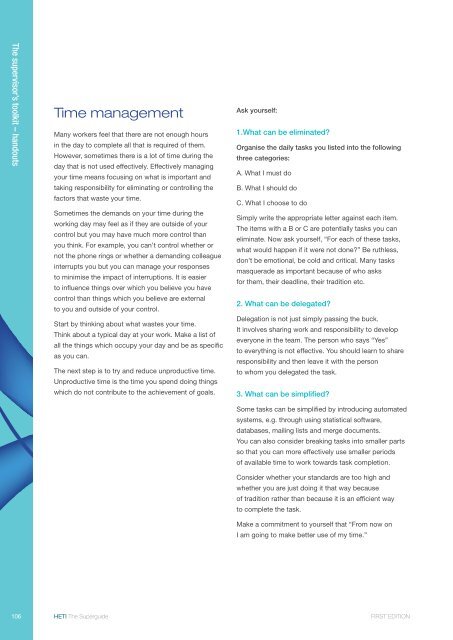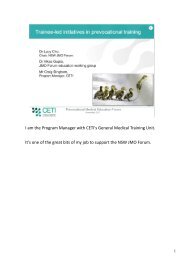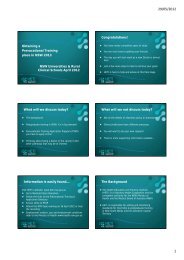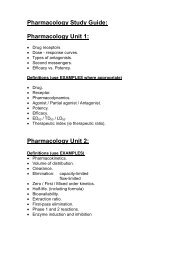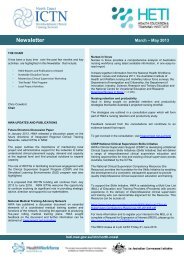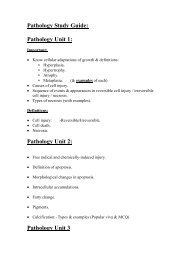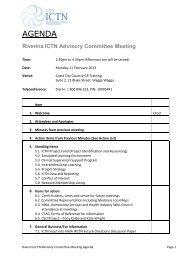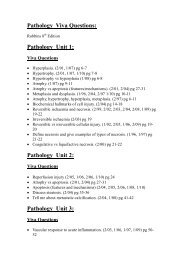Open - HETI - NSW Government
Open - HETI - NSW Government
Open - HETI - NSW Government
- No tags were found...
Create successful ePaper yourself
Turn your PDF publications into a flip-book with our unique Google optimized e-Paper software.
The supervisor’s toolkit – handoutsTime managementMany workers feel that there are not enough hoursin the day to complete all that is required of them.However, sometimes there is a lot of time during theday that is not used effectively. Effectively managingyour time means focusing on what is important andtaking responsibility for eliminating or controlling thefactors that waste your time.Sometimes the demands on your time during theworking day may feel as if they are outside of yourcontrol but you may have much more control thanyou think. For example, you can’t control whether ornot the phone rings or whether a demanding colleagueinterrupts you but you can manage your responsesto minimise the impact of interruptions. It is easierto influence things over which you believe you havecontrol than things which you believe are externalto you and outside of your control.Start by thinking about what wastes your time.Think about a typical day at your work. Make a list ofall the things which occupy your day and be as specificas you can.The next step is to try and reduce unproductive time.Unproductive time is the time you spend doing thingswhich do not contribute to the achievement of goals.Ask yourself:1.What can be eliminated?Organise the daily tasks you listed into the followingthree categories:A. What I must doB. What I should doC. What I choose to doSimply write the appropriate letter against each item.The items with a B or C are potentially tasks you caneliminate. Now ask yourself, “For each of these tasks,what would happen if it were not done?” Be ruthless,don’t be emotional, be cold and critical. Many tasksmasquerade as important because of who asksfor them, their deadline, their tradition etc.2. What can be delegated?Delegation is not just simply passing the buck.It involves sharing work and responsibility to developeveryone in the team. The person who says “Yes”to everything is not effective. You should learn to shareresponsibility and then leave it with the personto whom you delegated the task.3. What can be simplified?Some tasks can be simplified by introducing automatedsystems, e.g. through using statistical software,databases, mailing lists and merge documents.You can also consider breaking tasks into smaller partsso that you can more effectively use smaller periodsof available time to work towards task completion.Consider whether your standards are too high andwhether you are just doing it that way becauseof tradition rather than because it is an efficient wayto complete the task.Make a commitment to yourself that “From now onI am going to make better use of my time.”106 <strong>HETI</strong> The Superguide FIRST EDITION


